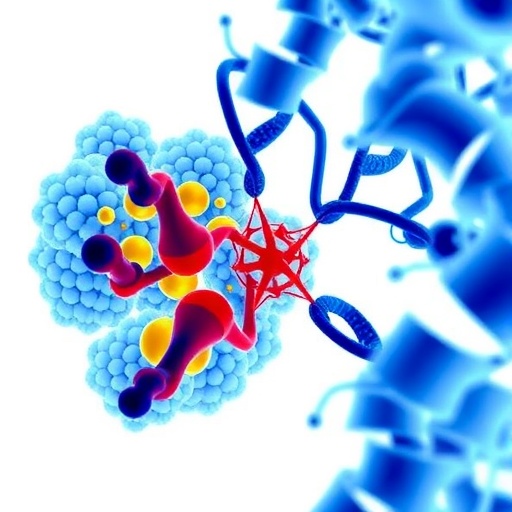A groundbreaking study led by researchers at the Center for Genetic Epidemiology at the Keck School of Medicine of USC has shed new light on the genetic underpinnings of aggressive prostate cancer in Black men. This international collaborative effort marks a significant advancement in understanding health disparities that disproportionately affect people of African ancestry, offering a pathway toward more precise screening protocols and tailored treatment strategies. The findings highlight five key genes harboring variants strongly linked to aggressive and metastatic prostate cancer, a form of the disease notorious for its severity and poor prognosis.
While substantial progress has been made in improving prostate cancer survival rates, particularly through early detection, stark disparities remain. Black men continue to face higher incidences of aggressive prostate cancer and suffer elevated mortality rates compared to other racial groups. The current research addresses the genomic factors contributing to this disparity by analyzing a wealth of genetic data from over 12,000 Black men from across the United States and Africa. With more than 7,000 diagnosed prostate cancer cases included, along with nearly 5,000 control subjects, this meta-analysis represents the largest and most comprehensive genetic screening in this population to date.
The researchers focused on 37 genes previously implicated in prostate cancer risk. What emerged was a clear and compelling association between disease severity and rare variants within five genes—ATM, BRCA2, CHEK2, HOXB13, and PALB2. Carriers of disease-causing mutations in these genes face up to six times the risk of developing prostate cancer compared to non-carriers. This enhanced understanding of genetic risk factors provides a critical foundation for moving beyond one-size-fits-all screening guidelines toward more personalized approaches.
Traditional risk assessments have often considered family history, race, and single gene mutations in isolation. However, this study introduces an innovative method integrating these components with a polygenic risk score—a metric that aggregates the influence of 451 common genetic variants associated with prostate cancer. By combining polygenic scores with the presence or absence of mutations in the identified high-risk genes and family history, the researchers proposed a composite risk model that significantly refines the prediction of aggressive disease.
This integrated risk model reveals a striking range of susceptibility among Black men. Those who carry harmful genetic variants, have a family history of prostate cancer, and rank in the top decile of polygenic risk scores exhibit up to 34 times greater likelihood of developing metastatic prostate cancer compared to the average individual. Such granular risk stratification affords the opportunity to personalize screening schedules, potentially leading to earlier detection and intervention in those most at risk.
Current clinical guidelines recommend the initiation of prostate cancer screening at age 45 for the general population, with earlier screening at age 40 advised for Black men, those with known genetic mutations, or a family history of the disease. Yet these guidelines treat these risk factors independently. The evidence from this study challenges that approach, arguing for a unified risk estimate that accounts for the interplay of genetic and familial factors.
Early identification of men at elevated risk for aggressive prostate cancer has profound clinical implications. By focusing screening efforts on high-risk individuals, clinicians can increase the likelihood of detecting tumors at a stage amenable to curative treatment. Concurrently, men categorized as low-risk might avoid the physical and psychological burdens associated with over-screening, such as unnecessary biopsies and treatment for indolent tumors that could remain asymptomatic over a lifetime.
The researchers emphasize that not all prostate cancers carry the same magnitude of threat. The variable risk profiles highlighted by this study underscore the need to move away from blanket screening recommendations toward precision medicine strategies that consider an individual’s unique genetic blueprint. Such a paradigm shift promises to optimize outcomes while minimizing harms associated with prostate cancer screening.
Continued exploration of genetic factors influencing prostate cancer risk in Black men is essential. The polygenic risk score methodology employed in this study is already undergoing clinical trial evaluation. Future research efforts are focusing on validating the inclusion of gene variants and family history into these risk prediction models in real-world clinical settings, potentially transforming prostate cancer management for populations historically underserved by biomedical research.
The study also exemplifies the power of international collaboration in addressing complex medical challenges. Nearly 80 co-authors from over 30 institutions across the United States, Africa, and Europe contributed data, expertise, and analysis, demonstrating the imperative of diverse research cohorts to unravel population-specific disease mechanisms fairly and comprehensively.
With prostate cancer representing one of the most common and lethal malignancies among men worldwide, these insights represent a landmark step in confronting health disparities through genomics. The integration of rare gene variant analysis with polygenic risk scoring and familial data paves the way for more effective, individualized preventive strategies that could ultimately reduce the burden of aggressive prostate cancer in Black men.
As genetic technologies continue to evolve and become more accessible, the prospect of personalized cancer risk assessment moves closer to routine clinical practice. This research from USC’s Keck School of Medicine catalyzes this transition, underscoring the importance of including diverse populations in genomic studies and tailoring medical interventions to reflect genetic diversity and complexity in disease susceptibility.
Subject of Research: People
Article Title: [Not Provided in Source]
News Publication Date: 5-Nov-2025
Web References: [Not Provided in Source]
References: [Not Provided in Source]
Image Credits: [Not Provided in Source]
Keywords: Prostate cancer, Health disparity, Genetic variation, Metastasis, Racial differences, Personalized medicine, Cancer screening, Cancer risk




